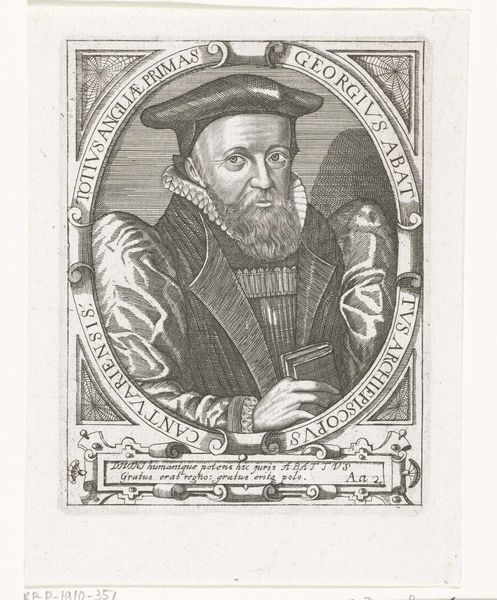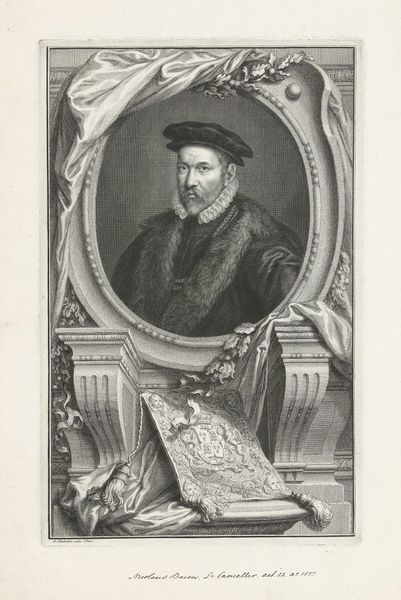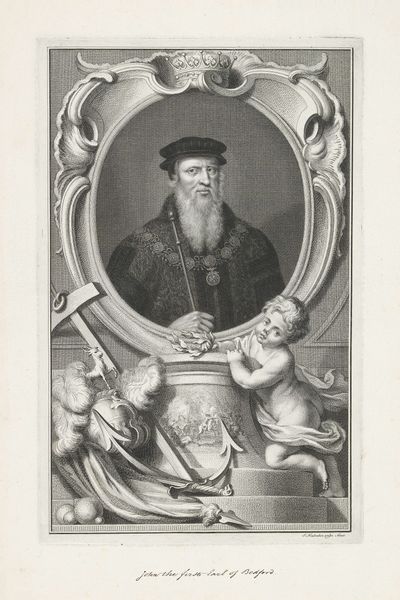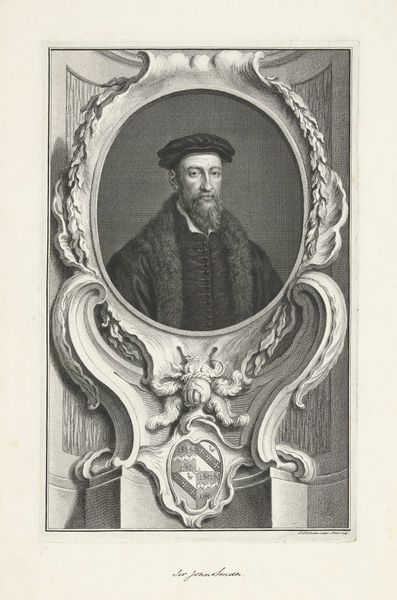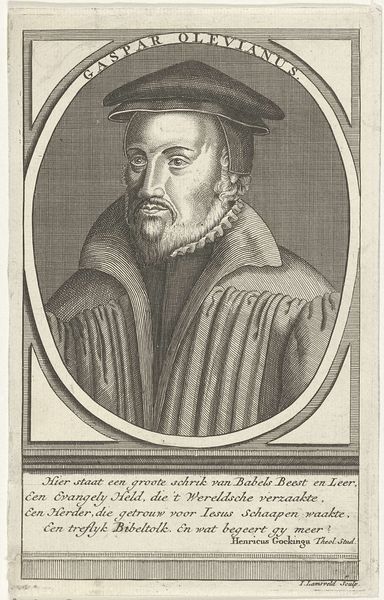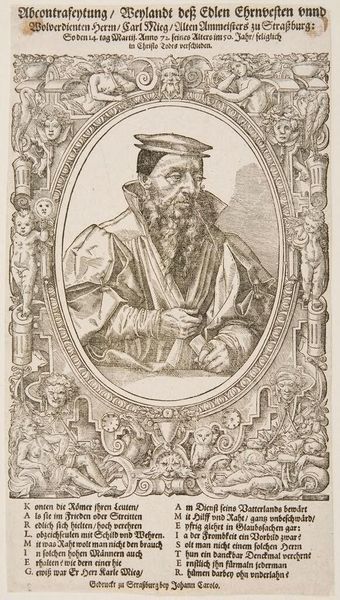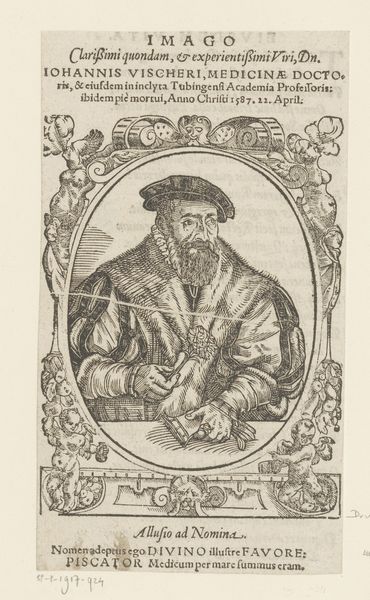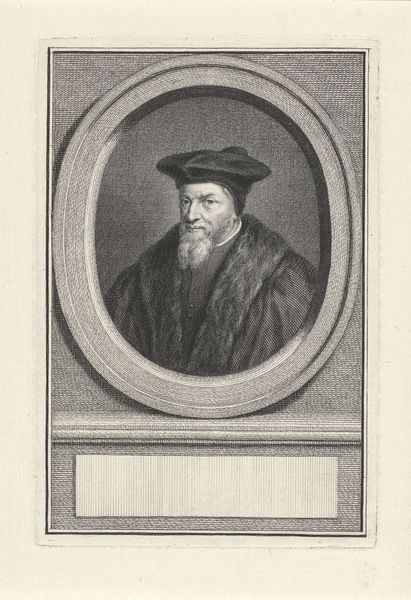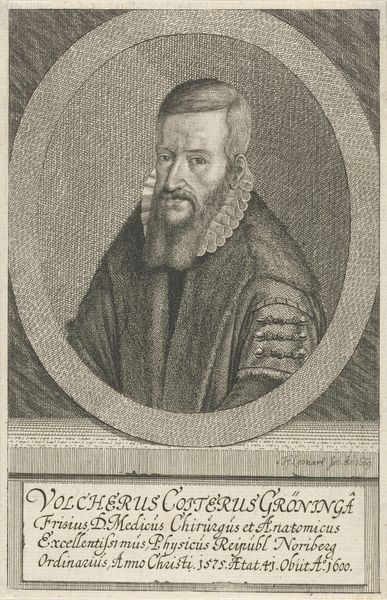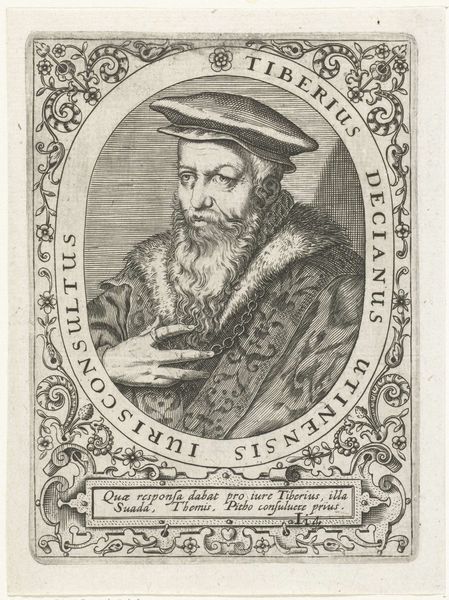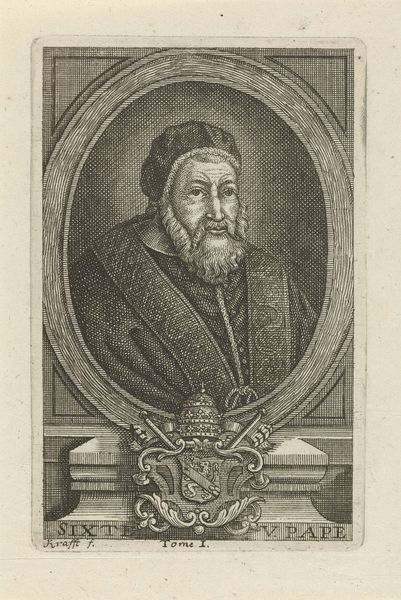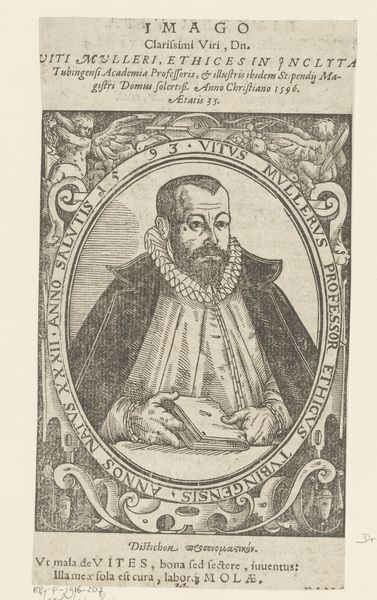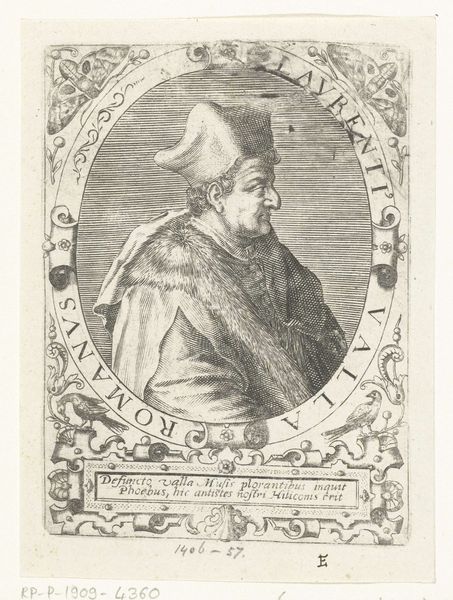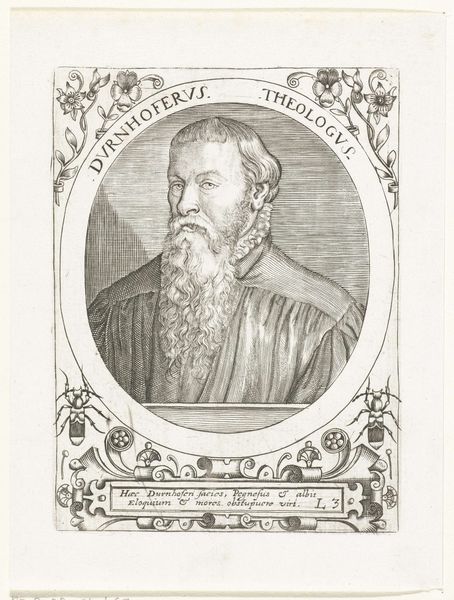
print, engraving
#
portrait
#
baroque
# print
#
old engraving style
#
caricature
#
history-painting
#
engraving
Dimensions: height 361 mm, width 228 mm
Copyright: Rijks Museum: Open Domain
This is Jacob Houbraken's print of George Abbot, Archbishop of Canterbury, made with engraving tools sometime before 1780. The print is made by incising lines into a metal plate, applying ink, and pressing it onto paper. Look closely and you can see the composition is built from thousands of tiny, deliberate lines. The texture and depth of the image depend entirely on the engraver’s skill. Houbraken has meticulously rendered Abbot’s garments to emphasize their materiality, the plushness of the fur stole, and the sheen of the satin sleeves. The face is more subtly modeled, giving Abbot an expression of quiet authority. This wasn't simply a feat of hand skill. Houbraken was part of a network of printmakers, publishers, and distributors. Prints like these were important cultural currency, spreading images of notable people far and wide. While the original portrait may have been painted for a wealthy patron, the print democratized the image, making it available to a much wider audience. This speaks to the vital role of craft in disseminating knowledge and shaping public perception.
Comments
No comments
Be the first to comment and join the conversation on the ultimate creative platform.
